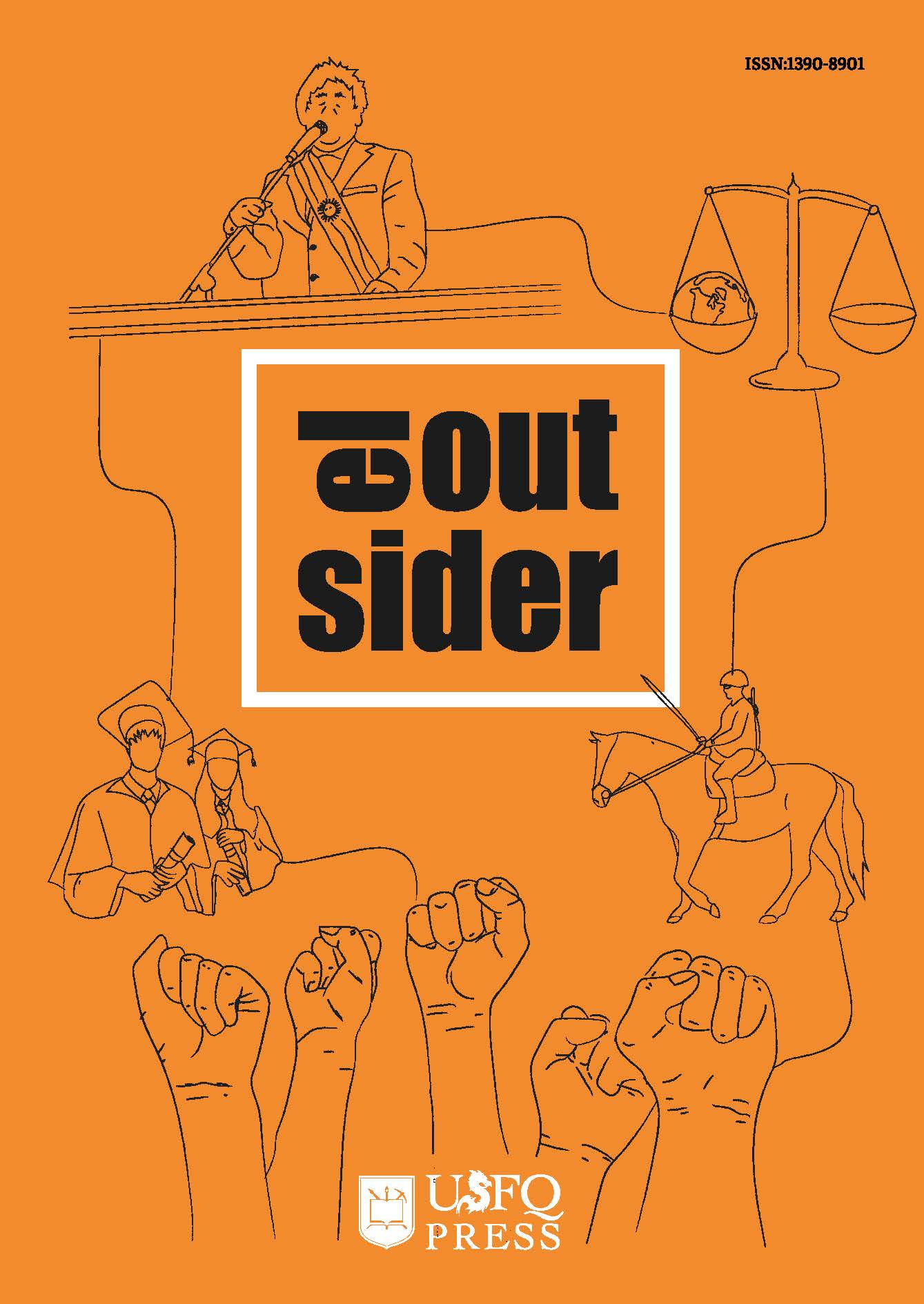Political shaping in university students in Ecuador: the cases of USFQ and UCE
Main Article Content
Abstract
This paper approaches how Ecuadorian academy shapes the political perspectives of undergraduate students, considering two specific realities: public universities and private universities. For this, I analyzed undergraduate students’ experiences —each of them did belong to majors related to humanities and social sciences— of two Ecuadorian universities: Universidad Central del Ecuador (UCE), as representant of public-funding institutions, and Universidad San Francisco de Quito (USFQ), as representant of private universities. I used qualitative methods, including a total of twelve interviews and one focal group. From these testimonies, on the one hand, I found evidence of a vast support of leftist views at UCE. On the other hand, I concluded that USFQ’s environment emphasized in the support of liberal —in its classical approach— values. However, I remark that there is huge political diversity in both universities, as well as many ideological tinges that shape political perspectives, including several factors such as socioeconomical conditions or the college of a student.
Article Details
References
Benalcázar, Milton. 2017. «Educación privada versus educación pública en el Ecuador | Revista Publicando». https://revistapublicando.org/revista/index.php/crv/article/view/577.
Castellano, Danilo. 2010. «Qué es liberalismo», Revista Verbo, N° 489-490.
Denzin, Norman K., e Yvonna S. Lincoln (coords.). 2015. Manual SAGE de investigación cualitativa. Vol. IV - Métodos de recolección y análisis de datos. Editorial Gedisa. http://gen.lib.rus.ec/book/index.php?md5=8DB76B3F6B3C9E256510F2E79E171EAE.
Falconí Vaca, María Gabriela. 2015. «Influencia del uso cotidiano de twitter por parte del presidente Rafael Correa en su imagen y popularidad entre los estudiantes de 18 a 25 años de la Universidad San Francisco de Quito», rraae, mayo. http://repositorio.usfq.edu.ec/handle/23000/4239.
Fowler, William R., y Eugenia Zavaleta Lemus. 2016. «El pensamiento de Pierre Bourdieu: Apuntes para una mirada arqueológica». Revista de Museología «Kóot», n.o 4 (febrero). https://doi.org/10.5377/koot.v0i4.2253.
Madrid Tamayo, Tito Livio. Madrid. 2019. «El sistema educativo de Ecuador: un sistema, dos mundos». Revista Andina de Educación 2 (1). https://doi.org/10.32719/26312816.2019.2.1.2.
Meneses Montesdeoca, Esteban Guillermo. 2018. «Subjetividad y reforma universitaria: estudiantes y la transformación de la Universidad Central del Ecuador», Dspace. enero. http://repositorio.flacsoandes.edu.ec/handle/10469/12967.
Ordorika Sacristán, Imanol. 2006. «Educación superior y globalización: las universidades públicas frente a una nueva hegemonía». Andamios 3 (5).
Ponce, Juan, y Fernando Carrasco. 2016. «Acceso y equidad a la educación superior y posgrado en el Ecuador, un enfoque descriptivo». Mundos Plurales - Revista Latinoamericana de Políticas y Acción Pública 3 (2). https://doi.org/10.17141/mundosplurales.2.2016.2841.
Rodríguez Kauth, Ángel. 2001. «Izquierda y derecha en la política». Realidad: Revista de Ciencias Sociales y Humanidades, n.o 82.

